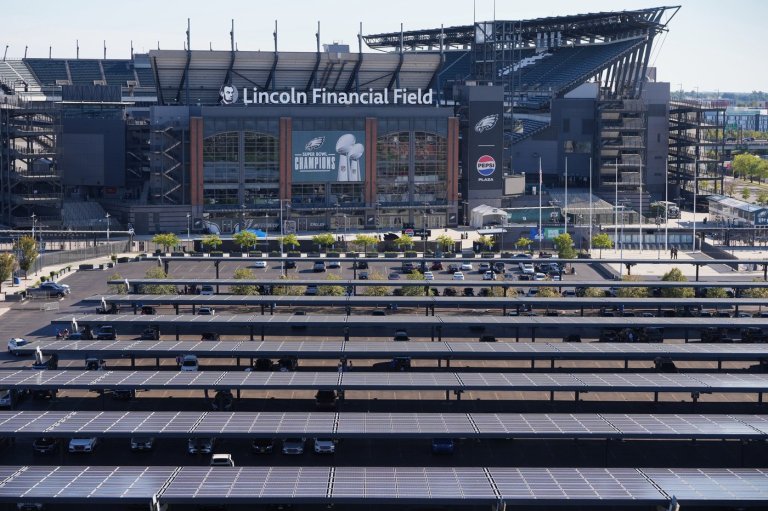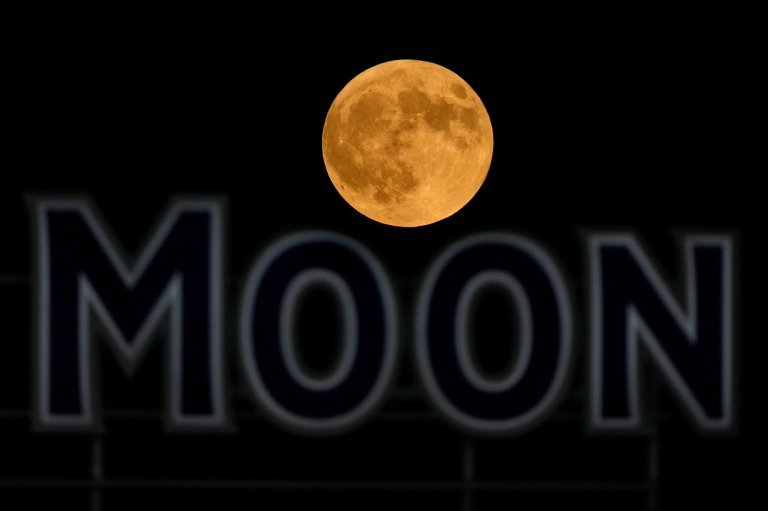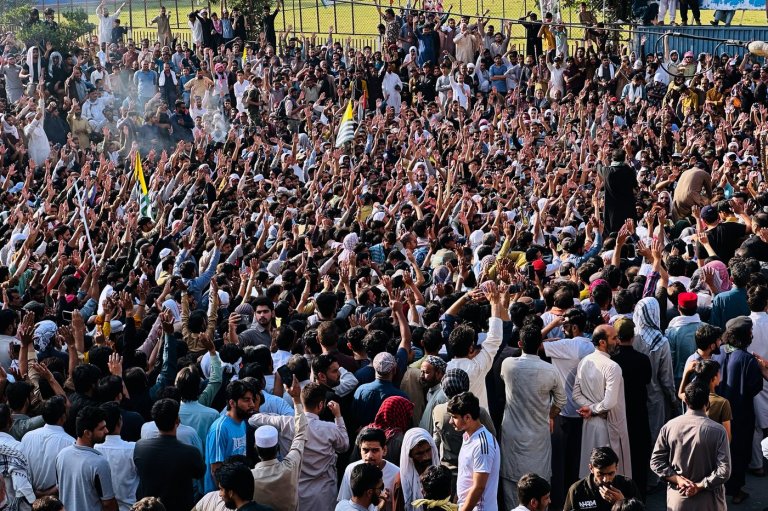AP News in Brief at 11:04 p.m. EST
Biden, Putin signal bigger confrontation ahead over Ukraine
MOSCOW (AP) — The East-West faceoff over Ukraine escalated dramatically Tuesday, with Russian lawmakers authorizing President Vladimir Putin to use military force outside his country and U.S. President Joe Biden and European leaders responding by slapping sanctions on Russian oligarchs and banks.
Both leaders signaled that an even bigger confrontation could lie ahead. Putin has yet to unleash the force of the 150,000 troops massed on three sides of Ukraine, while Biden held back on even tougher sanctionsthat could cause economic turmoil for Russia but said they would go ahead if there is further aggression.
The measures, accompanied by the repositioning of additional U.S. troops to the Baltic nations on NATO’s eastern flank bordering Russia, came as Russian forces rolled into rebel-held areas in eastern Ukraine after Putin said he was recognizing the independence of the separatist regions in defiance of U.S. and European demands.
Speaking at the White House, Biden said the Kremlin had flagrantly violated international law in what he called the “beginning of a Russian invasion of Ukraine.” He warned of more sanctions if Putin went further.
“We are united in our support of Ukraine,” Biden said. “We are united in our opposition to Russian aggression.” When it comes to Russian claims of a justification or pretext for an invasion, Biden said, “None of us should be fooled. None of us will be fooled. There is no justification.”
___
West hits back with sanctions for Russia’s Ukraine actions
BRUSSELS (AP) — Responding swiftly to Russian President Vladimir Putin’s order sending troops to separatist regions of Ukraine, world leaders hit back with non-military actions Tuesday in hopes of averting a full-blown war in Europe.
Germany made the first big move, taking steps to halt certification of the Nord Stream 2 gas pipeline from Russia — a massive, lucrative deal long sought by Moscow but criticized by the U.S. for increasing Europe’s reliance on Russian energy supplies.
And in Washington, U.S. President Joe Biden announced financial sanctions on banks and oligarchs as punishment for what he called “the beginning of a Russian invasion of Ukraine.” He said the U.S. would impose “full blocking” on two large Russian financial institutions and “comprehensive sanctions” on Russian debt.
“That means we’ve cut off Russia’s government from Western finance,” Biden said. “It can no longer raise money from the West and cannot trade in its new debt on our markets or European markets either.”
Biden promised that more sanctions would be coming if Putin proceeds further.
___
EXPLAINER: A look at toughest US sanctions facing Russia
WASHINGTON (AP) — President Joe Biden on Tuesday rolled out the first of what the U.S. says could be an ever-fiercer, ever-broader cascade of financial sanctions and penalties over Russia’s moves against Ukraine.
Tuesday’s first installment of sanctions hit members of Putin’s inner circle and their families and two banks that the U.S. considers especially crucial to the Kremlin and Russia’s military. Another new U.S. measure limits Russia’s power to raise money abroad.
U.S. officials made clear they were holding in possible reserve more devastating measures, in case Russia escalates actions threatening Ukraine’s territory and sovereignty. The Biden administration says those more sweeping penalties would cripple Russia’s ability to do business at home and abroad, and likely bring on a recession there.
Here’s a look at some of the tougher possible penalties that U.S. leaders are holding in abeyance — while watching for new Russian steps against Ukraine. The U.S. has yet to fully disclose which of the options it will use.
——
___
Arbery killers convicted of federal hate crimes in his death
BRUNSWICK, Ga. (AP) — The three white men convicted of murder in Ahmaud Arbery’s shooting were found guilty of federal hate crimes Tuesday in a verdict that affirmed what family members and civil rights activists said all along: that he was chased down and killed because he was Black.
The verdict — handed down one day before the second anniversary of Arbery’s death on Feb. 23, 2020 — was symbolic, coming just months after all three defendants were convicted of murder in a Georgia state court and sentenced to life in prison.
But family and community members viewed the hate crimes trial as an important statement. The case also became part of a larger national reckoning on racial injustice after graphic video of Arbery’s killing leaked online.
“Ahmaud will continue to rest in peace. But he will now begin to rest in power,” Arbery’s mother, Wanda Cooper-Jones, told reporters outside the courthouse.
Arbery’s father, Marcus Arbery Sr., bowed his head and shook his fists in quiet celebration as the guilty verdicts were read in the courtroom. He then pressed his hands together in front of his face as if saying a silent prayer.
___
A 10% drop for stocks is scary, but it’s not that rare
NEW YORK (AP) — The worries rocking Wall Street about interest rates, inflation and now Ukraine have sent the S&P 500 index — the most widely followed measure of the U.S. stock market — tumbling more than 10% from its record.
It’s a big enough fall that Wall Street has a name for it: a “correction.” Such drops occur regularly, and market pros tend to see them as potentially healthy setbacks that can clear out unjustified market exuberance or excessive risk-taking.
But they’re frightening in the moment, particularly for every new generation of investors that gets into the market at a time when it seems like stocks only go up. The S&P 500 more than doubled between late March 2020 and early January, when it set its last all-time high.
Taking a little froth out of the market is one thing. The larger fear, which always accompanies a correction, is that a correction could augur a “bear market,” which is what Wall Street calls a drop of at least 20%.
Here’s a look at what history shows about past corrections, and what market watchers are expecting going forward.
___
Biden’s full plate: Ukraine, inflation, low public approval
On the same day that President Joe Biden called out Russia and and issued harsh sanctions for its invasion of Ukraine, his only other public appearance was an event focused on the need to unkink the supply chain for minerals used in batteries, electronics and other technologies.
The back-to-back events on Tuesday highlighted the competing claims for Biden’s attention entering the spring of a midterm election year: the prospect of a calamitous European land war that will only add to inflation and other problems at home while also managing a vexing set of domestic challenges and must-do tasks.
For Biden, the convergence of such urgent foreign and domestic issues puts to a test the often cavalier assertions of previous administrations that a president has to be able to “walk and chew gum” at the same time.
Biden acknowledged the troubling overlap in remarks Tuesday as oil and gasoline prices have climbed on the grim headlines from Ukraine. He announced sanctions against Russian financial institutions, oligarchs and banks as well as Russia’s sovereign debt, effectively cutting the country off from U.S. and European financial systems.
Yet Biden also said he wants to limit the “pain” to Americans because sanctions aimed at pressuring Russian President Vladimir Putin could also limit Russia’s exports of oil and natural gas and cause global energy prices to soar.
___
COVID-19 shots unlikely to prompt rare inflammation in kids
COVID-19 vaccines are unlikely to trigger a rare inflammatory condition linked to coronavirus infection in children, according to an analysis of U.S. government data published Tuesday.
The condition, formally known as multisystem inflammatory syndrome in children, involves fever plus symptoms affecting at least two organs and often includes stomach pain, skin rash or bloodshot eyes. It’s a rare complicationin kids who have had COVID-19, and very rarely affects adults. The condition often leads to hospitalization, but most patients recover.
First reported in the United Kingdom in early 2020, it is sometimes mistaken for Kawasaki disease, which can cause swelling and heart problems. Since February 2020, more than 6,800 cases have been reported in the U.S., according to the Centers for Disease Control and Prevention.
As part of COVID-19 vaccine safety monitoring, the CDC and U.S. Food and Drug Administration added the condition to a list of several potential adverse events of special interest. A few cases reported in people with no detectable evidence of coronavirus infection prompted researchers at the CDC and elsewhere to undertake the new analysis, which was published Tuesday in The Lancet Child & Adolescent Health.
The possibility that the vaccines could somehow prompt the condition is only theoretical and the analysis found no evidence that it did, said co-author Dr. Buddy Creech, a Vanderbilt University pediatric infectious disease specialist who is leading a study of Moderna shots in children.
___
EXPLAINER: `Willfulness’ key to 2nd trial over Floyd killing
Prosecutors in the federal trial of three former Minneapolis police officers accused in George Floyd’s killingneeded to convince jurors that the officers “willfully” deprived Floyd of his civil rights.
It was a significant challenge. Jurors are likely to struggle with the concept as they deliberate, much as courts have for a century. Deliberations are expected to begin Wednesday. Here’s a look at the charges and how “willfulness” applies:
WHAT CHARGES DO THE OFFICERS FACE?
Tou Thao and J. Alexander Kueng are charged with willfully violating Floyd’s right to be free from unreasonable seizure by not intervening to stop Officer Derek Chauvin as he pinned Floyd’s neck with his knee. The indictment says they knew what Chauvin was doing and that Floyd was handcuffed, unresisting and eventually unresponsive.
Kueng, Thao and Thomas Lane are all charged with willfully depriving Floyd of his liberty without due process, specifically depriving him of the right to be free from an officer’s deliberate indifference to his medical needs. The indictment says the three men saw Floyd needed medical care and willfully failed to aid him.
___
National Guard to help DC control traffic for truck convoys
WASHINGTON (AP) — The Pentagon has approved the deployment of 700 unarmed National Guard troops to the nation’s capital as it prepares for trucker convoys that are planning protests against pandemic restrictions beginning next week.
Defense Secretary Lloyd Austin approved the request Tuesday from the District of Columbia government and the U.S. Capitol Police, the Pentagon said in a statement Tuesday night.
The troops would be used to assist with traffic control during demonstrations expected in the city in the coming days, the Pentagon said. Four hundred Guard members from the District of Columbia Guard will be joined by 300 Guard members from other states, according to the statement.
Guard members will not carry firearms or take part in law enforcement or domestic-surveillance activities, the Pentagon said.
Modeled after recent trucker protests in Canada, separate truck convoys have been planned through online forums with names like the People’s Convoy and the American Truckers Freedom Fund — all with different starting points, departure dates and routes. Some are scheduled to arrive in time for President Joe Biden’s State of the Union address on March 1, though others may arrive afterward.
___
Tonga’s internet finally restored 5 weeks after big eruption
WELLINGTON, New Zealand (AP) — Tonga’s main internet connection to the rest of the world has finally been restored more than five weeks after a huge volcanic eruption and tsunami severed a crucial undersea cable.
Three people in Tonga were killed by the Jan. 15 tsunami, dozens of homes were destroyed and drinking water was tainted.
The fiber-optic cable is now fully operational again after being reconnected Tuesday, said Samiuela Fonua, the chairperson at Tonga Cable Ltd., the state-owned company that owns the cable.
“It’s a huge relief when you know things have come to the end and are working well,” Fonua told The Associated Press. “It’s one step forward for the country.”
Fonua said the crew aboard a repair ship replaced about 90 kilometers (56 miles) of cable that had been damaged by the tsunami. His company didn’t have enough spare cable, Fonua added, and needed to borrow some from other companies.
Join the Conversation!
Want to share your thoughts, add context, or connect with others in your community?
You must be logged in to post a comment.

















